The Dynamic Drivers of Disease in Africa team comprised:
Neil Anderson
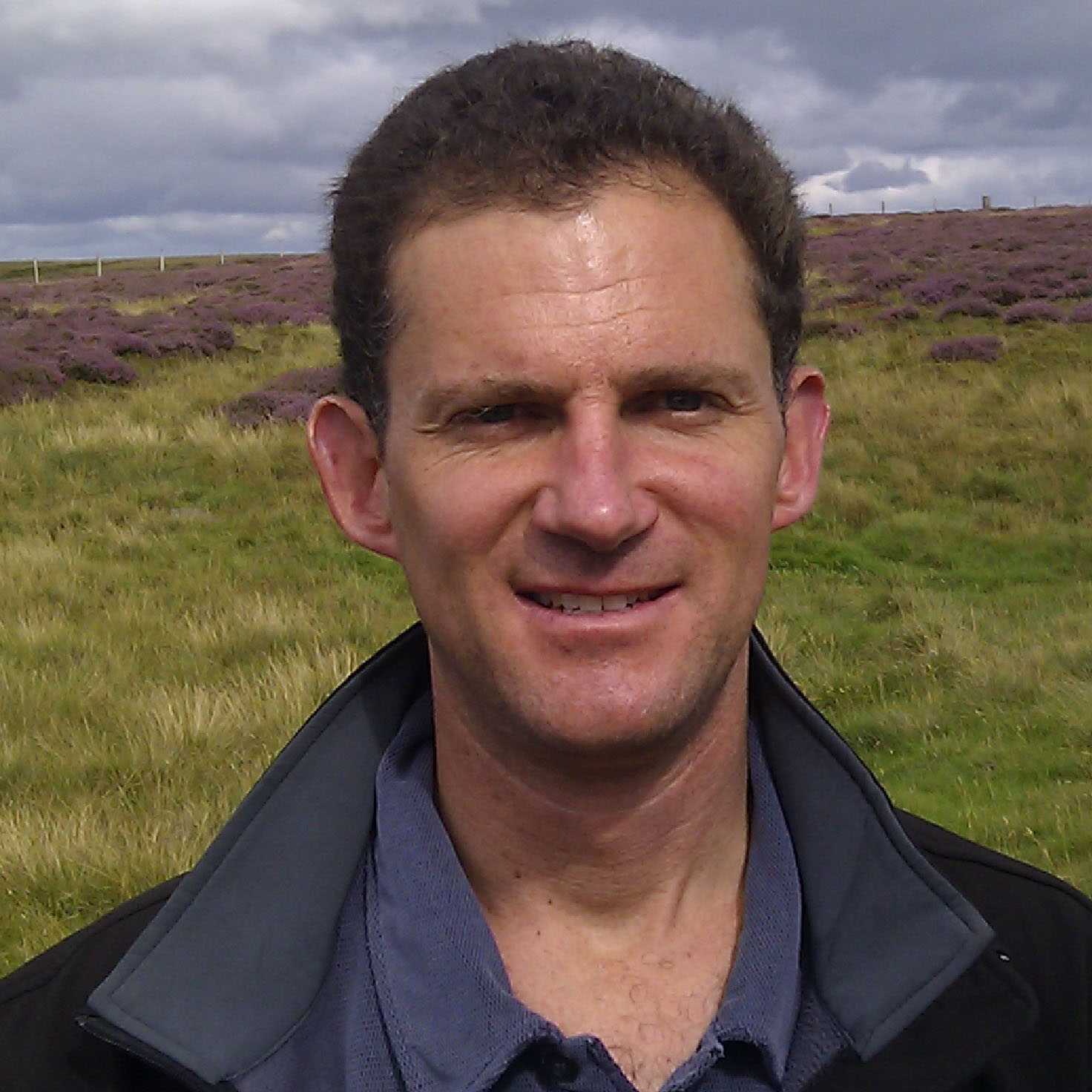 Neil is a vet with a PhD in wildlife epidemiology. His research interests centre around the transmission of diseases at the wildlife/livestock/human interface and he has specialist expertise in the ecology of trypanosomiasis in wildlife populations. He is programme coordinator/lecturer at the Royal (Dick) Veterinary College, Edinburgh.
Neil is a vet with a PhD in wildlife epidemiology. His research interests centre around the transmission of diseases at the wildlife/livestock/human interface and he has specialist expertise in the ecology of trypanosomiasis in wildlife populations. He is programme coordinator/lecturer at the Royal (Dick) Veterinary College, Edinburgh.
Peter Atkinson
 Pete is professor of geography at the University of Southampton. He specialises in remote sensing and spatial statistics, with a particular focus on tropical vector-borne and other communicable diseases. His current interests are in disease risk mapping, agent-based modelling of disease systems and disease seasonality.
Pete is professor of geography at the University of Southampton. He specialises in remote sensing and spatial statistics, with a particular focus on tropical vector-borne and other communicable diseases. His current interests are in disease risk mapping, agent-based modelling of disease systems and disease seasonality.
Jesse Ayivor
Jesse is an environmental scientist and agricultural geographer with special interest in land use and cover change, employing remote sensing and GIS techniques. He is a Research Fellow/Lecturer at the Institute for Environment and Sanitation Studies/Department of Geography and Resource Development, University of Ghana.
Kevin Bardosh
Kevin is an applied social scientist specialising in the relationships between public health, environment and agriculture. He is based between the University of Edinburgh and University of Florida where he works on a number of infectious disease control projects, mostly in Africa. He is interested in the political economy of One Health and how social and participatory research can be used to drive changes in policy and practice.
Bernard Bett
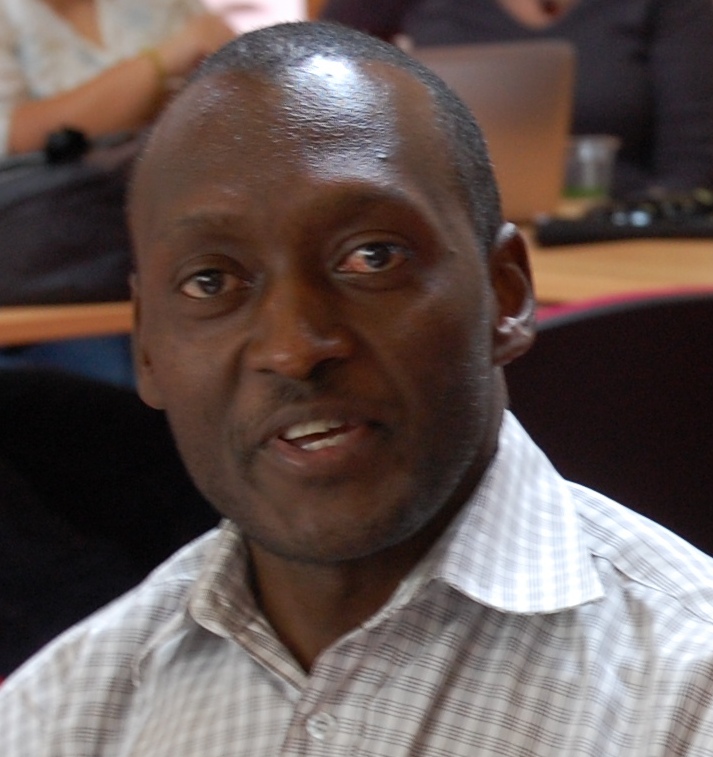 Bernard works with the International Livestock Research Institute (ILRI) as a veterinary epidemiologist. His research interest is in the application of both qualitative and quantitative epidemiological skills to solve animal health and zoonotic problems.
Bernard works with the International Livestock Research Institute (ILRI) as a veterinary epidemiologist. His research interest is in the application of both qualitative and quantitative epidemiological skills to solve animal health and zoonotic problems.
Salome Bukachi
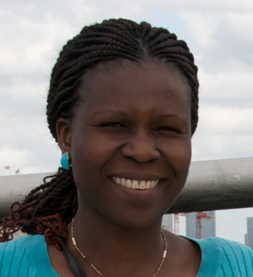 Salome is a research fellow in the Institute of Anthropology and Gender & African Studies, University of Nairobi. Her current areas of interest area infectious tropical diseases, looking at the socioeconomic and bahevioural aspects in both human and animal health, participatory research, livelihood studies and gender issues.
Salome is a research fellow in the Institute of Anthropology and Gender & African Studies, University of Nairobi. Her current areas of interest area infectious tropical diseases, looking at the socioeconomic and bahevioural aspects in both human and animal health, participatory research, livelihood studies and gender issues.
Andrew Cunningham
 Andrew is a veterinary pathologist. Since 2001 he has been Head of Wildlife Epidemiology at the Institute of Zoology, London, leading a team of researchers working on wildlife diseases, with particular reference to biodiversity conservation, on a wide range of animals. He is also interested in host-parasite interactions and co-evolution, and in wildlife disease and comparative pathology per se.
Andrew is a veterinary pathologist. Since 2001 he has been Head of Wildlife Epidemiology at the Institute of Zoology, London, leading a team of researchers working on wildlife diseases, with particular reference to biodiversity conservation, on a wide range of animals. He is also interested in host-parasite interactions and co-evolution, and in wildlife disease and comparative pathology per se.
Vupenyu Dzingirai
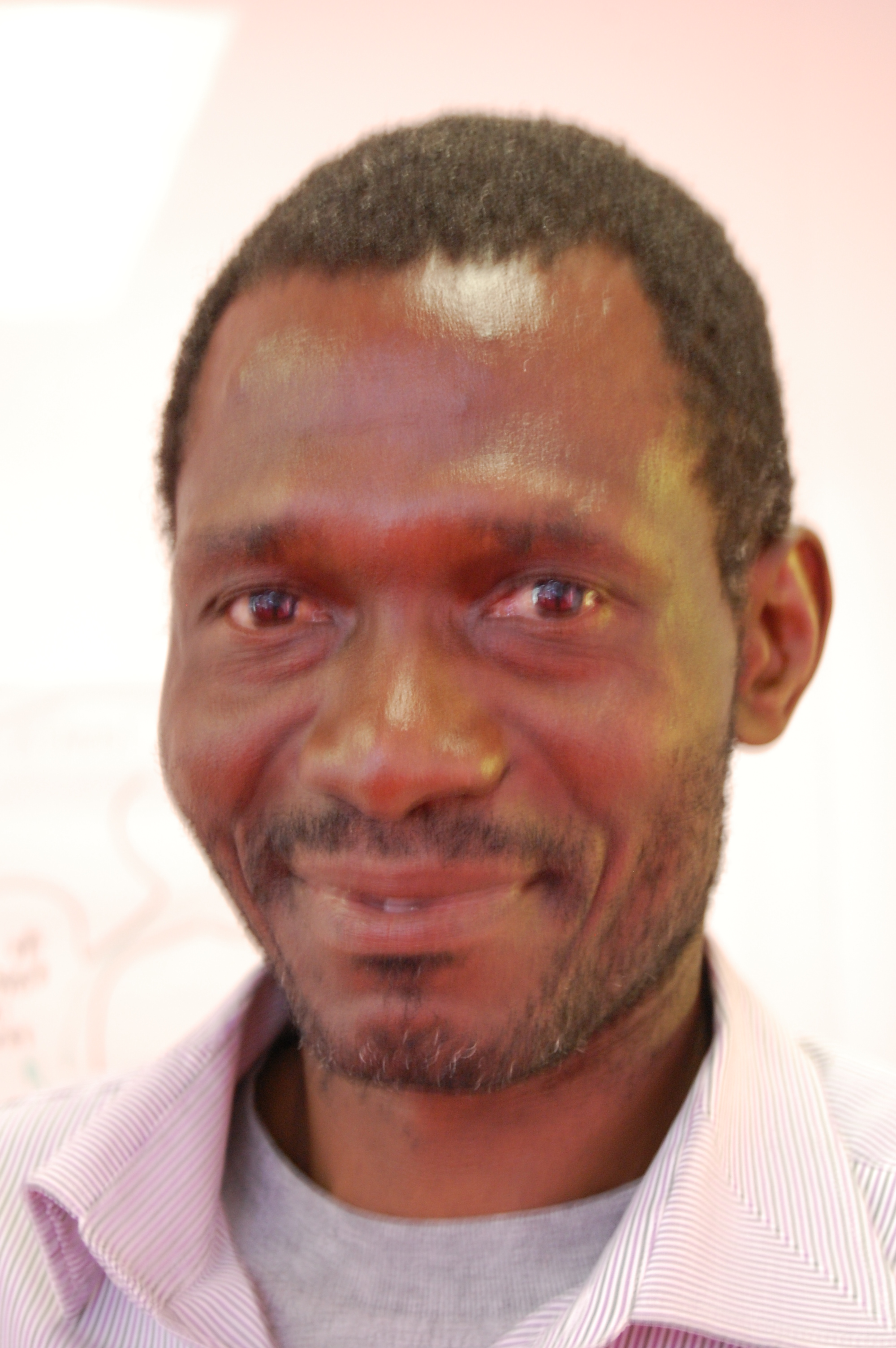 Vupenyu is manager of a project on water resources management at the Centre for Applied Social Sciences (CASS), at the University of Zimbabwe, looking at issues of water access in the context of climate change. He also lectures on Research Methods and Tools for Ecological Analysis and Environmental Communication.
Vupenyu is manager of a project on water resources management at the Centre for Applied Social Sciences (CASS), at the University of Zimbabwe, looking at issues of water access in the context of climate change. He also lectures on Research Methods and Tools for Ecological Analysis and Environmental Communication.
Richard Fonnie
 Richard gained qualifications in public health from Eastern Polytechnic College and in agriculture from Njala University College, Sierra Leone, and he holds many other specialist certificates in both health and agriculture. He has a wealth of knowledge in social mobilisation and community sensitisation, and agricultural extension services.*
Richard gained qualifications in public health from Eastern Polytechnic College and in agriculture from Njala University College, Sierra Leone, and he holds many other specialist certificates in both health and agriculture. He has a wealth of knowledge in social mobilisation and community sensitisation, and agricultural extension services.*
Victor Galaz
 Victor Galaz holds a PhD in political science and is currently working as a researcher and theme leader for the research theme Global Dynamics at the Stockholm Resilience Centre. His current research interests are in resilience theory, governance of emerging technologies, crises management, information technological innovations, epidemics governance, and applications of complexity theory on social systems.
Victor Galaz holds a PhD in political science and is currently working as a researcher and theme leader for the research theme Global Dynamics at the Stockholm Resilience Centre. His current research interests are in resilience theory, governance of emerging technologies, crises management, information technological innovations, epidemics governance, and applications of complexity theory on social systems.
Delia Grace
 Delia is a veterinary epidemiologist and food safety specialist at International Livestock Research Institute (ILRI), Nairobi. Currently, her research work involves developing and managing risk-based approaches to animal diseases, particularly zoonoses, in developing countries. She heads a programme in the new agricultural research programme on agriculture, human health and nutrition.
Delia is a veterinary epidemiologist and food safety specialist at International Livestock Research Institute (ILRI), Nairobi. Currently, her research work involves developing and managing risk-based approaches to animal diseases, particularly zoonoses, in developing countries. She heads a programme in the new agricultural research programme on agriculture, human health and nutrition.
Donald Grant
Donald is chief physician of the Lassa ward at Kenema Government Hospital (KGH), Sierra Leone, and a lecturer in the Community Health Department of the College of Medicine at the University of Sierra Leone. His clinical and research interests revolve around infectious diseases and he is actively involved in the community outreach projects.
Catherine Grant
 Catherine is the research officer for the Drivers of Disease programme and also works for the UK’s Department for International Development (DFID) Human Development Resource Centre. Before this, she conducted research for and had management roles in several international development organisations, managed an NHS research department and monitored clinical trials. Catherine has worked in Ethiopia, Kenya, Mexico and South Africa.
Catherine is the research officer for the Drivers of Disease programme and also works for the UK’s Department for International Development (DFID) Human Development Resource Centre. Before this, she conducted research for and had management roles in several international development organisations, managed an NHS research department and monitored clinical trials. Catherine has worked in Ethiopia, Kenya, Mexico and South Africa.
Kate Jones
 Kate is a senior research fellow in biodiversity at the Zoological Society of London and is interested in understanding patterns of global biodiversity to predict future impact of global change. Kate is using this approach to examine the anthropogenic, ecological and environmental drivers of disease emergence and transmission.
Kate is a senior research fellow in biodiversity at the Zoological Society of London and is interested in understanding patterns of global biodiversity to predict future impact of global change. Kate is using this approach to examine the anthropogenic, ecological and environmental drivers of disease emergence and transmission.
James Koninga
Bashiru Koroma
Bashiru is an environmental scientist at Njala University Institute of Environmental Management and Quality Control, School of Environmental Sciences, Sierra Leone.
Morrison Lahai
Elaine Lawson
Elaine is an environmental scientist at the Institute for Environmental and Sanitation Studies, at the University of Ghana, employing socio-economic methods to investigate human interactions with the natural environment, environmental policy issues, social and cultural impacts of environmental degradation. Her areas of expertise include gender assessments, employing tools essential for conducting extensive surveys as well as the quantitative and qualitative analysis of responses and Participatory Rural Appraisal (PRAs).
Melissa Leach
 Melissa is Director of the Institute of Development Studies and a founder of the ESRC STEPS Centre. She is a social anthropologist specialising in environmental and science-society issues. Her research interests include social and institutional dimensions of environmental and technological change, and issues of knowledge, power and citizen engagement.
Melissa is Director of the Institute of Development Studies and a founder of the ESRC STEPS Centre. She is a social anthropologist specialising in environmental and science-society issues. Her research interests include social and institutional dimensions of environmental and technological change, and issues of knowledge, power and citizen engagement.
Gianni Lo Iacono
 Gianni is a versatile interdisciplinary scientist in the veterinary medicine department of the University of Cambridge. He is experienced in sophisticated mathematical modelling and advanced numerical computations addressing a wide range of problems related to biology and physics.
Gianni is a versatile interdisciplinary scientist in the veterinary medicine department of the University of Cambridge. He is experienced in sophisticated mathematical modelling and advanced numerical computations addressing a wide range of problems related to biology and physics.
Hayley MacGregor
 Hayley is a medical doctor and social anthropologist whose areas of research include mental health and disability, human rights discourses and health citizenship, and the regulation of and responses to medical technologies. She is also interested in the politics of policy processes on emerging zoonotic diseases in Africa and the disjunctures that emerge between resource constraints and different perceptions of risk at the local level, and international frameworks of surveillance such as One Health.
Hayley is a medical doctor and social anthropologist whose areas of research include mental health and disability, human rights discourses and health citizenship, and the regulation of and responses to medical technologies. She is also interested in the politics of policy processes on emerging zoonotic diseases in Africa and the disjunctures that emerge between resource constraints and different perceptions of risk at the local level, and international frameworks of surveillance such as One Health.
Dr Noreen Machila
 Noreen is a lecturer at the University of Zambia School of Veterinary Medicine, Lusaka. She has spent most of her post-graduate years working on trypanosomiasis and other parasitic diseases in Zambia, Zimbabwe, Tanzania and Kenya.
Noreen is a lecturer at the University of Zambia School of Veterinary Medicine, Lusaka. She has spent most of her post-graduate years working on trypanosomiasis and other parasitic diseases in Zambia, Zimbabwe, Tanzania and Kenya.
Lina Moses
 Lina is the field manager for Tulane University’s Lassa Fever Programme in Sierra Leone. Lina’s research focuses on pathogen/host interactions using ecological and epidemiological methods to develop evidence-based community-level interventions to halt human disease. She received her PhD and MSPH from Tulane University’s Department of Tropical Medicine and has a bachelor’s degree in anthropology.
Lina is the field manager for Tulane University’s Lassa Fever Programme in Sierra Leone. Lina’s research focuses on pathogen/host interactions using ecological and epidemiological methods to develop evidence-based community-level interventions to halt human disease. She received her PhD and MSPH from Tulane University’s Department of Tropical Medicine and has a bachelor’s degree in anthropology.
Joseph Mubanga
Joseph is deputy director of veterinary and tsetse control at the Department of Veterinary and Livestock Development of Zambia’s Ministry of Livestock and Fisheries Development. He is experienced in tsetse and trypanosomiasis control and is also interested in veterinary epidemiology and research in the field of trypanosomiasis and tsetse ecology.
Amon Muwira
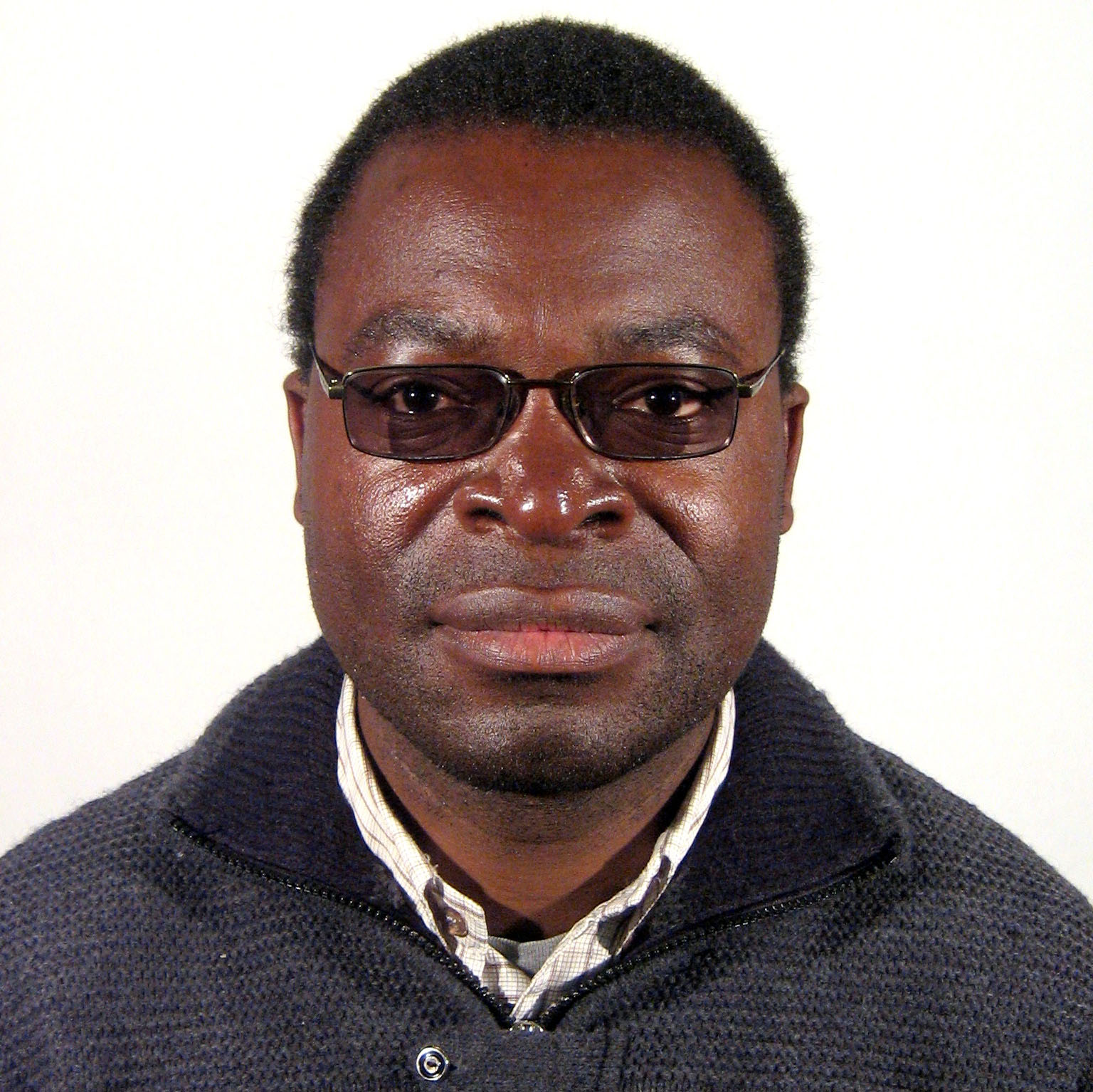 Amon is a lecturer and chairperson at the Department of Geography and Environmental Science, at the University of Zimbabwe. He specialises in applications of geographic information systems (GIS), remote sensing (RS) and global positioning systems (GPS) in environmental monitoring and management.
Amon is a lecturer and chairperson at the Department of Geography and Environmental Science, at the University of Zimbabwe. He specialises in applications of geographic information systems (GIS), remote sensing (RS) and global positioning systems (GPS) in environmental monitoring and management.
Evans Mwangi
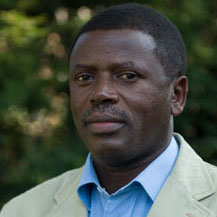 Evans is an ecologist/conservation biologist with research and academic interests in ecosystem dynamics and biological diversity. He teaches both undergraduate and postgraduate at the University of Nairobi and collaborates with research institutions in Kenya and around Africa. He also undertakes project evaluation, assessment training for international development agencies in NRM and the environment.
Evans is an ecologist/conservation biologist with research and academic interests in ecosystem dynamics and biological diversity. He teaches both undergraduate and postgraduate at the University of Nairobi and collaborates with research institutions in Kenya and around Africa. He also undertakes project evaluation, assessment training for international development agencies in NRM and the environment.
Yaa Ntiamoa-Baidu
 Yaa is Acting Pro-Vice-Chancellor, Office for Research, Innovation and Development at the University of Ghana. Her research focuses on wildlife ecology and she has over 70 publications on various aspects of wildlife and environmental conservation, wetlands and water birds. She is well known as one of the leaders in environment and nature conservation in Africa.
Yaa is Acting Pro-Vice-Chancellor, Office for Research, Innovation and Development at the University of Ghana. Her research focuses on wildlife ecology and she has over 70 publications on various aspects of wildlife and environmental conservation, wetlands and water birds. She is well known as one of the leaders in environment and nature conservation in Africa.
Thomas Randolph
 Tom is an agricultural economist who has worked in the CGIAR for the past 20 years, first on rice policy in West Africa and more recently on livestock research, mostly on animal health. He is director of CGIAR’s Research Program on Livestock and Fish. He also has an interest in the links between agriculture and human nutrition.
Tom is an agricultural economist who has worked in the CGIAR for the past 20 years, first on rice policy in West Africa and more recently on livestock research, mostly on animal health. He is director of CGIAR’s Research Program on Livestock and Fish. He also has an interest in the links between agriculture and human nutrition.
David Redding
 Dave is a research associate at University College, London, focusing on understanding human diseases in the context of large-scale changes to biodiversity. He is assessing the spatial extent of Lassa fever with respect to the ecology of its host, using multi-species niche models to assess the impact of climate change on the hosts and vectors of Rift Valley fever and using remote-sensing data to examine comparative responses of a variety of zoonotic diseases to environmental change.
Dave is a research associate at University College, London, focusing on understanding human diseases in the context of large-scale changes to biodiversity. He is assessing the spatial extent of Lassa fever with respect to the ecology of its host, using multi-species niche models to assess the impact of climate change on the hosts and vectors of Rift Valley fever and using remote-sensing data to examine comparative responses of a variety of zoonotic diseases to environmental change.
Rosemary Sang
 Rosemary is an arbvovirologist based at the Centre for Virus Research, Kenya Medical Research Institute also working in collaboration with WRP, USAMRU-Kenya, and other collaborators on arbovirus surveillance and research in Kenya. She has long experience in medical entomology (PhD) and medical virology (MSc), heads the Kenya national reference laboratory for Arbovirus and Hemorrhagic Fevers and has vast experience in arbovirus/vhf surveillance in Kenya. She has participated in many outbreak investigations in the region.
Rosemary is an arbvovirologist based at the Centre for Virus Research, Kenya Medical Research Institute also working in collaboration with WRP, USAMRU-Kenya, and other collaborators on arbovirus surveillance and research in Kenya. She has long experience in medical entomology (PhD) and medical virology (MSc), heads the Kenya national reference laboratory for Arbovirus and Hemorrhagic Fevers and has vast experience in arbovirus/vhf surveillance in Kenya. She has participated in many outbreak investigations in the region.
Kathrin Schaten
Kathrin is a vet and a public health scientist. Her research interests focuses on One Health and infectious disease epidemiology, taking social and socioeconomic impacts into consideration.She is a PhD researcher at the University of Edinburgh and University of Zambia.
Ian Scoones
 Ian is co-director of the ESRC STEPS Centre. He is an agricultural ecologist whose research links natural and social sciences, focusing on relationships between science and technology, local knowledge and livelihoods, and the politics of agricultural, environment and development policy processes.
Ian is co-director of the ESRC STEPS Centre. He is an agricultural ecologist whose research links natural and social sciences, focusing on relationships between science and technology, local knowledge and livelihoods, and the politics of agricultural, environment and development policy processes.
Alexandra Shaw
 Alex is a livestock and health economist specialised in the field of programme evaluation, working independently as a consultant. Her main areas of interest are the economics of disease control, project and programme evaluation and appraisal and research management. She has worked on all aspects of the tsetse and trypanosomiasis problem in Western, Central, Southern and Eastern Africa. Her studies have led to her becoming more involved in assessing the dual burdens imposed on human and animal populations by other zoonotic diseases and the economics of controlling them.
Alex is a livestock and health economist specialised in the field of programme evaluation, working independently as a consultant. Her main areas of interest are the economics of disease control, project and programme evaluation and appraisal and research management. She has worked on all aspects of the tsetse and trypanosomiasis problem in Western, Central, Southern and Eastern Africa. Her studies have led to her becoming more involved in assessing the dual burdens imposed on human and animal populations by other zoonotic diseases and the economics of controlling them.
William Shereni
William is a veterinary and medical entomologist. He is Director of Tsetse Control Division and Acting Principal Director, Department of Livestock and Veterinary Services at the Ministry of Agriculture, Zimbabwe.
Richard Suu-Ire
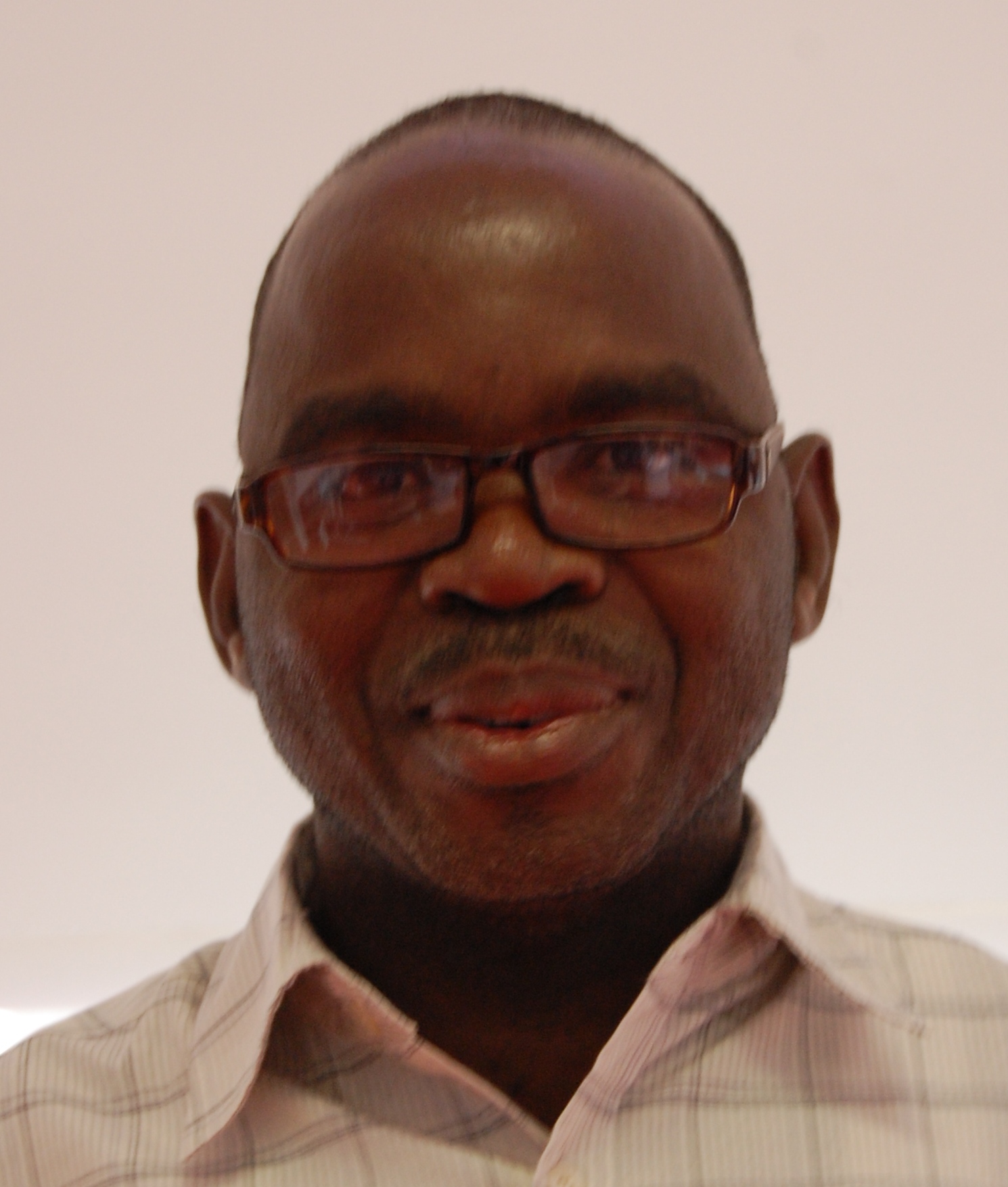 Richard of the Wildlife Division of the Forestry Commission (WDFC), Ghana, is head of Ghana’s Wildlife Disease Surveillance Unit (WDSU) and wildlife epidemiologist to Ghana’s Veterinary Services Department. He has worked closely with a range of leading international research institutions and organisations such as WHO and Center for Disease Control and Prevention (USA), and he is currently collaborating with the Cambridge Infectious Diseases Consortium (CIDC), focusing on viral zoonoses of fruit bats.
Richard of the Wildlife Division of the Forestry Commission (WDFC), Ghana, is head of Ghana’s Wildlife Disease Surveillance Unit (WDSU) and wildlife epidemiologist to Ghana’s Veterinary Services Department. He has worked closely with a range of leading international research institutions and organisations such as WHO and Center for Disease Control and Prevention (USA), and he is currently collaborating with the Cambridge Infectious Diseases Consortium (CIDC), focusing on viral zoonoses of fruit bats.
Linda Waldman
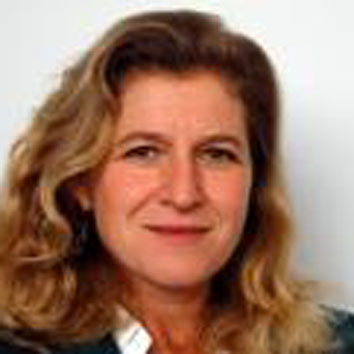 Linda Waldman is an anthropologist working in environmental health and science-society issues. Her current research examines the socio-political aspects of emerging zoonosis, scientific knowledge and policy processes and the drivers, risks and impacts of zoonotic diseases on people’s health, livelihoods and poverty.
Linda Waldman is an anthropologist working in environmental health and science-society issues. Her current research examines the socio-political aspects of emerging zoonosis, scientific knowledge and policy processes and the drivers, risks and impacts of zoonotic diseases on people’s health, livelihoods and poverty.
Susan Welburn
 Susan is director of the Global Health Academy and Professor of Medical and Veterinary Molecular Epidemiology at the Centre for Infectious Diseases (CID), at the University of Edinburgh. She is also leader of the sleeping sickness research group. Her research concentrates on the design and use of molecular diagnostic tools for the study and management of sleeping sickness and animal trypanosomiasis.
Susan is director of the Global Health Academy and Professor of Medical and Veterinary Molecular Epidemiology at the Centre for Infectious Diseases (CID), at the University of Edinburgh. She is also leader of the sleeping sickness research group. Her research concentrates on the design and use of molecular diagnostic tools for the study and management of sleeping sickness and animal trypanosomiasis.
Thomas Winnebah
 Thomas is a geographer and sociologist from Fourah Bay College and Louisiana State University respectively, currently Acting Director and Senior Lecturer in the Institute of Geography and Development Studies, School of Environmental Sciences, Njala University, Sierra Leone. He has more than 20 years’ experience in social science teaching, research and outreach work related to West African sustainable development.
Thomas is a geographer and sociologist from Fourah Bay College and Louisiana State University respectively, currently Acting Director and Senior Lecturer in the Institute of Geography and Development Studies, School of Environmental Sciences, Njala University, Sierra Leone. He has more than 20 years’ experience in social science teaching, research and outreach work related to West African sustainable development.
James Wood
 James is head of the department of veterinary medicine and Alborada Professor of Equine and Farm Animal Science at the University of Cambridge. His work combines mathematical modelling and more traditional epidemiological approaches with detailed molecular studies of pathogen and host in a multidisciplinary framework, which also considers the ecology of the host as well as of the infection itself and its pathogenesis. James’s major current focus is studying the emergence of RNA virus infections from bats and how they might spread to domestic animals and humans, particularly in West Africa.
James is head of the department of veterinary medicine and Alborada Professor of Equine and Farm Animal Science at the University of Cambridge. His work combines mathematical modelling and more traditional epidemiological approaches with detailed molecular studies of pathogen and host in a multidisciplinary framework, which also considers the ecology of the host as well as of the infection itself and its pathogenesis. James’s major current focus is studying the emergence of RNA virus infections from bats and how they might spread to domestic animals and humans, particularly in West Africa.
* SEPTEMBER 2013 It is with sadness that we announce the passing of Richard Fonnie. Richard brought a wealth of knowledge on Lassa fever and land-use practices to the Drivers of Disease Consortium and he will be greatly missed.
- Find more photos of our research in action on flickr




